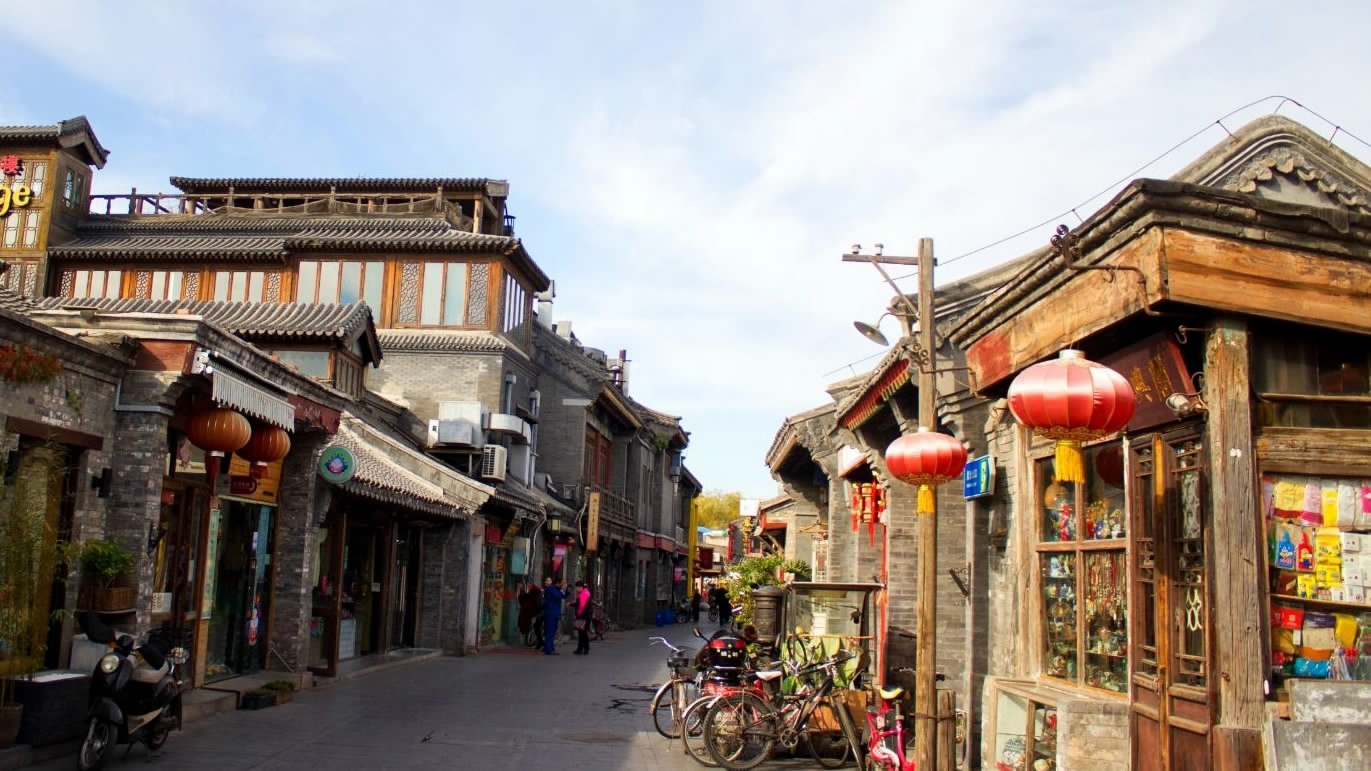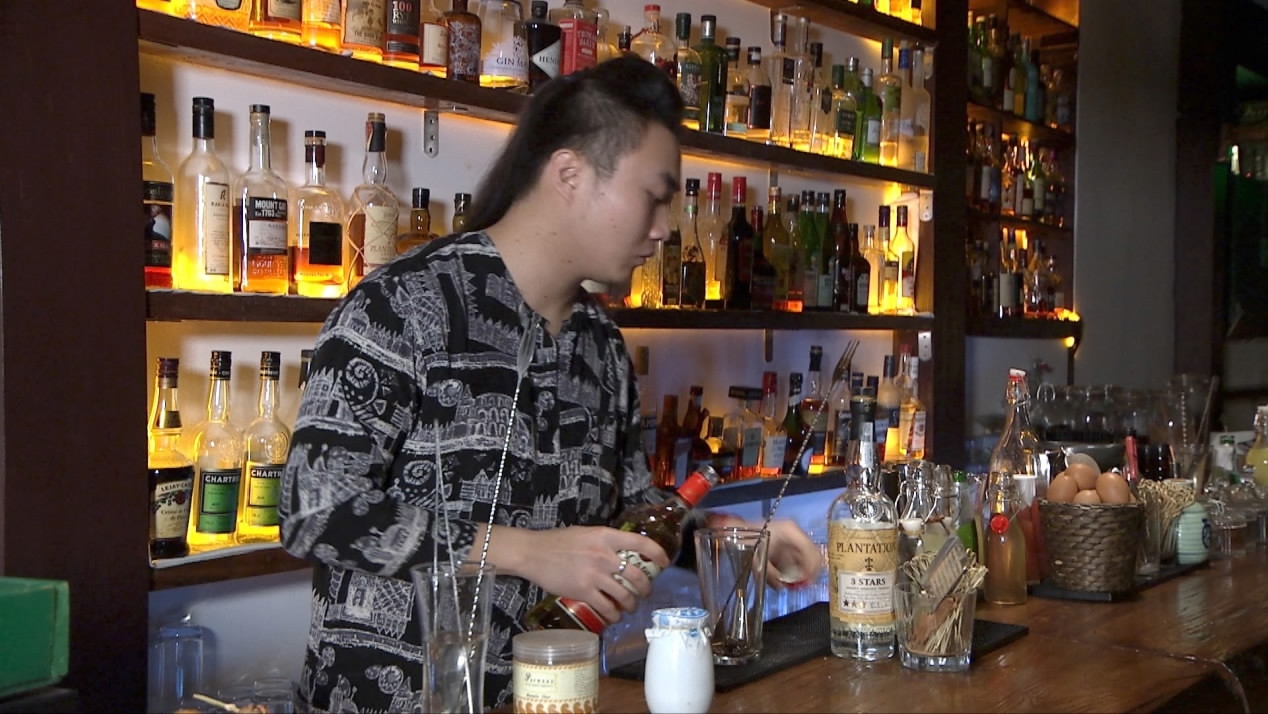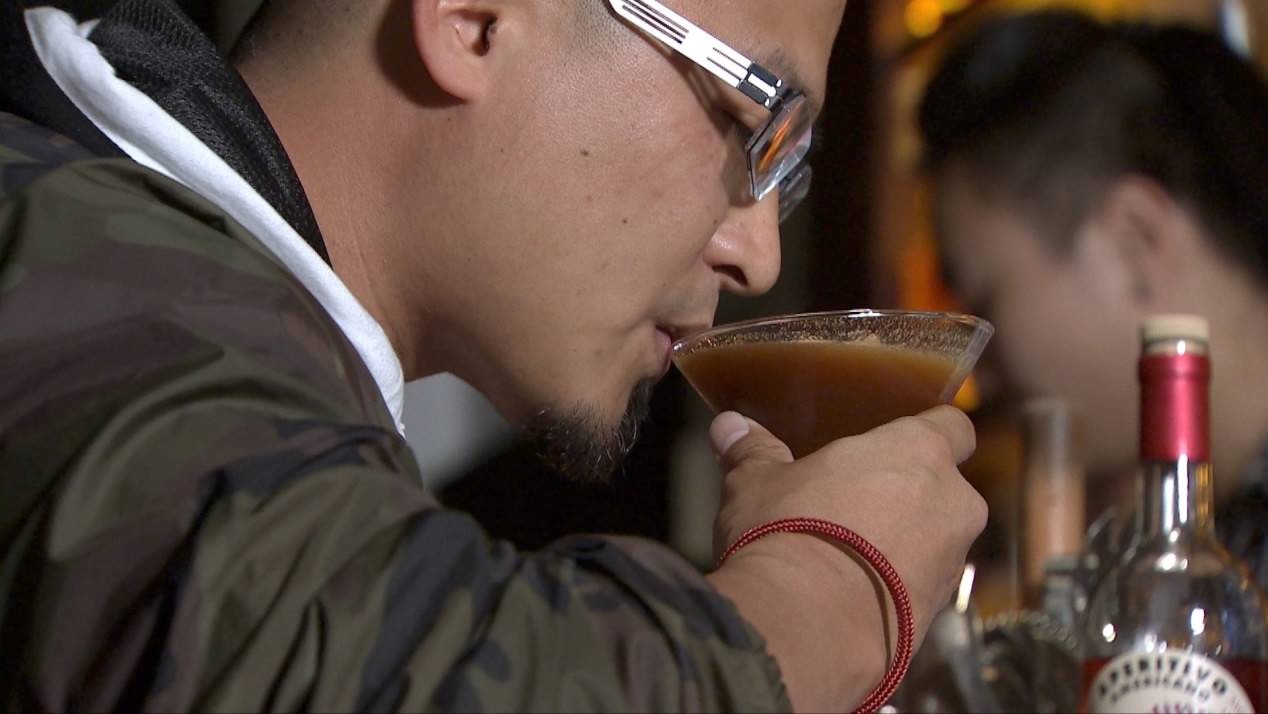
Culture
15:22, 21-Oct-2017
Hutong bar-goers: A hidden but happy crowd
By Mark Fontes

For Beijing native Tony Gou, coming home in 2009 was a mixed blessing.
He had spent the prior decade living in the United States, mostly Texas, where locals "go big" on everything, including their drinks and nightlife.
Gou says the last eight years have been largely about re-connecting with Chinese culture, while retaining some of his western experiences. Particularly the after-hours ones.
"I missed those parts, the social life, the night work, the cultural life," Gou said. "So I decided to experience the hutong culture."

Fang Bar’s chief bartender mixes up a favorite. /CGTN Photo
Fang Bar’s chief bartender mixes up a favorite. /CGTN Photo
Beijing's iconic hutong neighborhoods are well-sprinkled with bars. Ones like
Fang Bar in the Shoubi Hutong of Xinhua Culture Mansions. For Gou and many
others, it captures the true essence of China. "It kind of like bridges between the eastern and western cultures," Guo said.
Fang Bar's manager, Zak El Masri is a westerner himself, hailing from Great
Britain.
"It was a bar, at the end of the day, what do you need from a bar? You
want to have fun, you want to feel relaxed, maybe make friends, and enjoy a
drink," El Masri said. "I wanted to bring those basics in, but add
another layer."
That added layer, the uniqueness of the drinks, was named after dynasties and
emperors, and the ingredients are indigenous to China.

Fang Bar frequenter Tony Gou sips one of the bar’s most popular drinks. /CGTN Photo
Fang Bar frequenter Tony Gou sips one of the bar’s most popular drinks. /CGTN Photo
We're in a place where we've got different fruits, different herbs, why not use these things in cocktails made in a bar in Beijing to make them more Beijing or more China at least?" El Masri added.
Guo described home-themed bevvies such as Masala and Monkey King as a delectable delight for patrons.
It is a culturally enriching way to make merry in China's capital. "For the foreigners, when they look at the menu, they know what they're drinking, but the name tells the Chinese story," Guo said.

SITEMAP
Copyright © 2018 CGTN. Beijing ICP prepared NO.16065310-3
Copyright © 2018 CGTN. Beijing ICP prepared NO.16065310-3